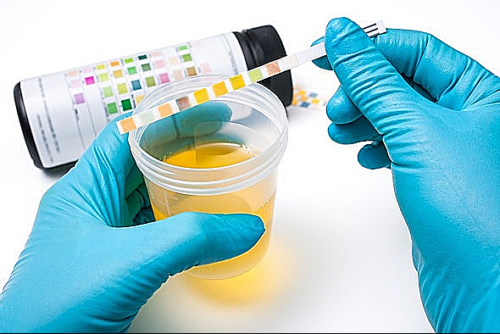Typically, many of us are not going to look at our pee when we go to the bathroom. Little do you know that the color, consistency, smell, and the frequency of your bathroom trips can give you some truly vital info on what is going on inside your body. Urine provides vital information about your kidney and heart health, and your liver function. The things that you take in like medications, food and also illnesses can affect your pee.
The average adult produces 6.3 cups of urine a day, what are the red flags that something might be wrong with your urine?
The color of pee
If your body is functioning normally, your pee should be a pale yellow to gold. If your pee is colorless, you’ve been drinking lots of water, or are taking a diuretic that helps you urinate a lot.
A dark shade of honey or brown-colored urine could mean dehydration, which is a red flag that you are not drinking enough fluids. The shades could also signify liver trouble, so if the dark shades do not lighten up, do see a doctor asap!
Urine that is pink or red can get this way because you might be consuming too many carrots, blackberries, beets, or rhubarbs. Some meds like rifampin (an antibiotic) or phenazopyridine (used to treat urinary tract infections–UTIs) can turn your urine these shades. If you see blood in your urine, see a doctor to rule out kidney disease, UTIs, prostate issues, or a tumor.
Orange pee can signal a vitamin B2 side effect but can also be the result of meds like phenazopyridine, or the antibiotic isoniazid. Dehydration can also bring on an orange-colored pee but so can problems with your liver or bile ducts, so check with a physician to rule things out.
The consistency of pee
If your urine is frothy or foamy, no matter what color, it is a sign that there is protein present which can indicate dehydration or a kidney problem. Sometimes when the bladder is full, your stream is more forceful, and the result is foamy. Keep a watchful eye to see if the foam makes another appearance when the bladder is not so full.
The smell of your urine
Believe it or not, urine does not have a strong smell, but some foods will kick the odor up a notch like asparagus, which has a sulfur compound. Vitamin B6 supplements can also change the odor of urine. If you are dehydrated and the pee gets very concentrated, it can smell just like ammonia. If your urine smells funny, it could be a sign that something is going on. A smell of ammonia could indicate dehydration. A musty smell might mean liver disease. A foul smell could indicate a bladder infection. A sweet smell could mean diabetes. If your urine smells funny, check it out!
How often should you pee?
Some folks might have to urinate eight or more times a day; we are all on different clocks. The frequency of urination can change depending on what you drink, eat, or what drugs you are taking. Folks who are older will often find that they need to go to the bathroom more frequently than younger people. If you are peeing more than your norm, perhaps there is a UTI, kidney issue, diabetes, enlarged prostate, or bladder problem like interstitial cystitis involved. If you feel the urge to pee and can’t make it to the bathroom in time, then you might have an overactive bladder which is common in older adults.
Call your doctor when…
Anytime you see a change in your pee that is not normal for you, pick up the phone and make an appointment to see your doctor. If your urine changes are accompanied by fever, pain, vomiting, back pains, discharge or extreme thirst, make sure to let your physician know about your every symptom.











